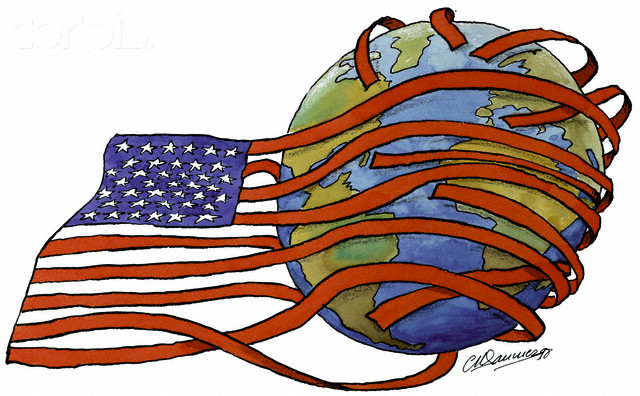
With the globalization of markets and digital technology, restructures, mergers and takeovers that are constantly changing, the super-rich barons of the content industry (Netflix, Fox, GAFAM,* Disney, etc.) have extended their lucrative domination across all platforms and all markets.
A new world of artificial intelligence is continuously emerging and we are unable to control the scale of it or the effect on our lives. At the World Economic Forum in Davos in January, the rich and powerful of the world glorified the increasing pace of the fourth industrial revolution; that is, the digital revolution, and its widespread application thanks to new technologies across all areas of human society.
This new El Dorado heralds a better way of life, we are told at every juncture. We take note. But we recognize, from our standpoint as informed observers, that there is a huge risk of things getting out of control, particularly of data being secretly and privately exploited and the opacity of the ways in which networks are owned and managed. Beyond the virtual futurology that powerful people show off in Davos to seduce us, we adopt a healthy skepticism as we cast a critical eye over the current state of digital society.
We talk a lot about fake news, a catchall American expression that the American president has helped to popularize a great deal with his manic and Machiavellian use of Twitter. Of course, neither Donald Trump nor the all-pervasive digital platforms invented fake news. We have to keep in mind that false, misleading or baseless information that is designed to deceive has always existed, from false rumors to smear campaigns by way of illusory promises, disinformation campaigns and totalitarian ideologies.
There is less talk, strangely, of a phenomenon of the same nature as fake news that is just as powerful and insidious, if not more so, as it is now firmly embedded in the popular imagination. That is, fake views. By this I mean the countless omnipresent audiovisual products that are aimed at the popular imagination: films, series, sitcoms, music, shows, partisan debates; in short, cultural media content which is produced and marketed by the all-encompassing entertainment ecosystem that is dominated by American interests. According to UNESCO, culture is “the set of distinctive spiritual, material, intellectual and emotional features of society or a social group, that encompasses, not only art and literature, but lifestyles, ways of living together, value systems, traditions and beliefs.”
How can we not be concerned at this point about our modest and fragile Francophone cultural ecosystem, when we observe how the powerful American production and broadcasting industry shapes the imagination of “consumers” in an English-speaking Canada that is already malleable due to its multiculturalism, and in a Quebec whose identity has become ambivalent and weak? American imperialism imposes its subjects and its myths onto the programming of popular content across platforms, often taking subjects relating to other communities or countries only to then get them wrong or distort their meaning.
With the globalization of markets and digital technology, restructures, mergers and takeovers that are constantly changing, the super-rich barons of the content industry (Netflix, Fox, GAFAM,* Disney, etc.) have extended their lucrative domination across all platforms and all markets, with unparalleled means of identifying, characterizing and targeting customers for the benefit of the advertising market. This is the era of Big Brother technology. The era of the great network of networks, the Big Browser, which imposes its viewpoint on the creative and artistic universe, with its aesthetic criteria and fundamental values linked to American myths of the power of money, of individual success, all etched into the collective imagination by the spectacle of ostentatious success or violent and decadent failure. In reality, Big Browser produces fake views, to entertain, to provide distraction by staging controversy and spectacle. While raking in billions in profits. This entertainment has become the new opium of the masses.
This globalization, financed and controlled by big business and its digital technology operator allies who support it and enhance it, are reshaping national and civic identities in an all-conquering melting pot. For the sake of an egalitarian and multifaceted present, this wave of deliberate ambiguity distorts history, renounces culture, erodes points of reference that relate to individual regions and does not think twice about showing incoherent mishmashes or flashy displays that verge on hysteria.
We are in the era of “corporate nums” who operate like the “corporate bums” denounced by Canadian New Democrat leader David Lewis back in his day. This is a new economic imperialism that is sweeping the globe thanks to technological weapons, which further increase the effectiveness of the legal, financial and corporate strategies of predatory capitalism, to the detriment of national economies and the interests of their people.
The (class) struggle is fake. And the ones being taken for a ride are those in the audience or in front of the screen.
*Editor’s note: GAFAM is an acronym for Google, Apple, Facebook, Amazon and Microsoft, the five largest companies in the information technology industry.

Leave a Reply
You must be logged in to post a comment.